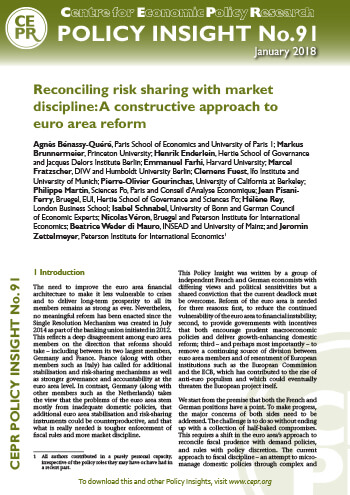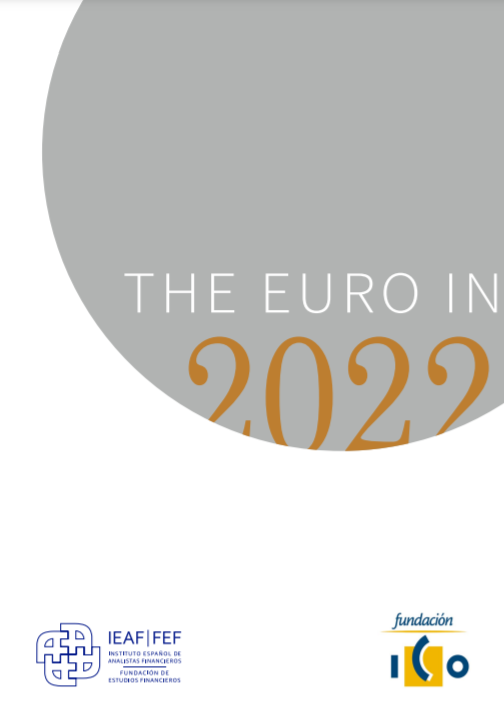External Publication
Reconciling risk sharing with market discipline: A constructive approach to euro area reform
This publication, written by a group of independent French and German economists, proposes six reforms which, if delivered as a package, would improve the Eurozone’s financial stability, political cohesion, and potential for delivering prosperity to its citizens, all while addressing the priorities and concerns of participating countries.
This publication was also published by Centre for Economic policy research (CEPR)
After nearly a decade of stagnation, the Eurozone is finally experiencing a robust recovery. While this comes as a relief – particularly in countries with high debt and unemployment levels – it is also breeding complacency about the underlying state of the Eurozone. Maintaining the status quo or settling for marginal changes would be a serious mistake, however, because the currency union continues to suffer from critical weaknesses, including financial fragility, suboptimal conditions for long-term growth, and deep economic and political divisions. While these problems have many causes, a poorly designed fiscal and financial architecture is an important contributor to all of them:
- The ‘doom loop’ between banks and sovereigns continues to pose a major threat to individual member states and the Eurozone as a whole. An incomplete banking union and fragmented capital markets prevent the Eurozone from reaping the full benefits of monetary integration and from achieving better risk sharing through market mechanisms.
- Fiscal rules are non-transparent, pro-cyclical, and divisive, and have not been very effective in reducing public debts. The flaws in the Eurozone’s fiscal architecture have overburdened the ECB and increasingly given rise to political tensions.
The Eurozone’s inability to deal with insolvent countries other than through crisis loans conditioned on harsh fiscal adjustment has fuelled nationalist and populist movements in both debtor and creditor countries. The resulting loss of trust may eventually threaten not just the euro, but the entire European project.
Read more on VOX, CEPR’s policy portal














